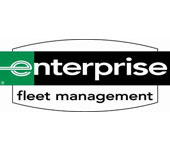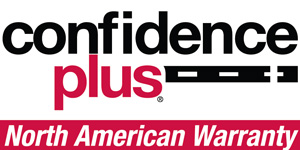Business Hours
- Monday - Friday
- BASHFORD AVE
7:30 AM - 4:30 PM
Phone: (502) 203-0454 - PRESTON HWY
7:00 AM - 4:00 PM
Phone: (502) 230-4279
AMERICAN BRAKE CENTERS INC.
(502) 203-0454 for Bashford Ave or (502) 230-4279 for the Preston Hwy location | 3435 Bashford Ave Ct Louisville, KY 40218
AUTONET TV
Archive for October 2024Why You Have an O2 Sensor (Oxygen Sensor)Posted October 27, 2024 3:18 AMIf someone asked you what gas made up the largest portion of the atmosphere, what would you guess? Well, it's not oxygen; it only makes up 20.9 percent. But since we're talking about oxygen, you should know that your vehicle uses oxygen sensors to make sure your engine is running the way it should. The oxygen sensors measure how much oxygen is in your exhaust. If there's too much, it means there's a problem with the mixture of fuel and air. The sensor sends signals to computers in your engine and adjusts the mixture so it maximizes performance and efficiency. It does this constantly. Many vehicles have multiple oxygen sensors. Some have one close to the engine, another close to the muffler. Two measurements are better than one since they allow readings to be more accurate. You may have a vehicle with a dual exhaust, so you'd have twice as many oxygen sensors. Your oxygen sensors can fail. One thing that can damage them is contamination from bad fuel. The sensors can simply wear out, though they usually last a long time. It's not unusual for an oxygen sensor to last 100,000 miles/160,000 km. One more thing that can cause an oxygen sensor to fail is residue from an engine that's burning oil. Plus contaminants from the road like salt can also cause problems. Here are some signs that your oxygen sensors might be failing.
Head to your service facility and tell your advisor what symptoms your vehicle is experiencing. They have the equipment and training to track down the issue. Note that simply replacing the oxygen sensor is often not enough since it doesn't get to the root of the problem; other repairs may be needed. So make sure your oxygen sensors are working the way they should be. Oh, and back to the question of what gas makes up most of the Earth's air? It's nitrogen, which comprises 78 percent of the air we—and our engines—breathe. American Brake Centers Inc. All Lined Up (Alignment Inspection)Posted October 20, 2024 3:16 AMWhen you head down a straight road, does your vehicle pull to one side? Do you feel vibration in any of the wheels? If you've noticed any of these things, it's probably time for you to get your wheel alignment checked. When your vehicle left the factory, its wheels were parallel to each other and perpendicular to the ground. That maximizes traction for good steering and braking. Every time you take your vehicle on the road, normal wear and tear will affect your alignment. Hit a bump, a pothole or a curb and all those little knocks will add up Bad alignment not only can cause your steering wheel to pull unevenly, it can also wear your tires out a lot faster than they should. In fact, if you look at your tires and see one side of the tread is a lot smoother than the other, it could be another sign of bad alignment. Since different problems can cause similar symptoms, the first thing our trained technician will do is test drive your vehicle. Then, they'll check the front end and steering linkage as well as look for tire wear. Then, the technician will put your vehicle on a lift and use computerized diagnostic equipment to measure alignment angles so they can precisely align your vehicle's components. There are different kinds of alignments. One is a front-end alignment that aligns components of the vehicle's front axle. Another is a thrust alignment that makes sure the front wheels are lined up with the direction the rear wheels are pointed. A third type is four-wheel alignment which is usually used on all-wheel drive and 4-wheel drive vehicles. It's also recommended for front-wheel drive vehicles that have independent rear suspensions. It makes sure the angles of all the wheels are where they should be relative to each other and also the vehicle's body or frame. Your steering wheel should be perfectly centered if you are heading straight down the road, so the technician will adjust it so it is. Finally, they'll take your vehicle back on the road for a final test drive to make sure it's performing the way engineers intended. Your service adviser can recommend how often you should have your alignment inspection, since it depends on the type of vehicle you drive (SUV, sporty car, etc.) and your driving environment. Properly aligned wheels can help your vehicle perform better and save you from expensive repairs down the road. American Brake Centers Inc. A Clean Connection (Battery Cleaning)Posted October 13, 2024 3:19 AMA clean connection is a wonderful thing. Think of a good cell phone signal or an airline connection with ample time and short distance to the next gate. Good connections are also important for your vehicle’s battery, and one secret to that is to make sure it’s periodically cleaned. If it’s been a while since you have had any service to your battery, bring it in so we can inspect it for any corrosion that might have formed. Corrosion on the battery terminals will affect the connection between the battery and your vehicle’s electrical system. The amount of corrosion you can expect can be influenced by such things as the kind of climate you live in (dry or humid, warm or cold), if there’s lots of salt on the roads and how old your battery is. We have tools and chemicals to safely remove the corrosion for an optimal electrical connection. In order to reduce the amount of corrosion re-forming on the battery, we’ll apply a special protective coating. It’s also important to have your battery tested, especially if it’s more than a few years old or hasn’t been tested in a while. Our equipment can measure how well a battery holds a charge and how much more life you should expect from it. We can discuss when you might expect to buy a new one, since a battery is definitely the kind of thing you don’t want to have fail you when you’re least expecting it. American Brake Centers Inc. For 4x4s (Maintenance of 4x4 Vehicles)Posted October 6, 2024 3:14 AMSome people love 4x4 vehicles, the true 4-wheel drive works of engineering like Jeeps and 4x4 pickups that allow you to seemingly go anywhere on the planet. You can climb up a 40-degree rock trail with some planning and skill (always careful to protect the environment, of course), or you can get through the deepest snow. But with that added capability comes additional complexity, drive-train components and other systems that less capable vehicles don't have. And that is why when it comes to 4x4s, you have to maintain them a little differently from those vehicles that spend their lives on pavement. Here are some of the key things to keep an eye on:
So enjoy your 4x4 and what it can do that other vehicles can't. Just remember that even though it's tough on the outside, it needs special care to keep it going. Oh, and remember to take care of the environment when you go off-roading, too. American Brake Centers Inc.
3435 Bashford Ave Ct.
Louisville, KY 40218
502-459-0355
| ||
SearchArchiveJune 2019 (18)July 2019 (4) August 2019 (4) September 2019 (5) October 2019 (4) November 2019 (4) December 2019 (5) January 2020 (5) February 2020 (4) March 2020 (5) April 2020 (4) May 2020 (5) June 2020 (4) July 2020 (4) August 2020 (5) September 2020 (4) October 2020 (4) November 2020 (5) December 2020 (4) January 2021 (6) February 2021 (4) March 2021 (4) April 2021 (4) May 2021 (5) June 2021 (4) July 2021 (4) August 2021 (5) September 2021 (4) October 2021 (5) November 2021 (4) December 2021 (4) January 2022 (6) February 2022 (4) March 2022 (4) April 2022 (4) May 2022 (5) June 2022 (4) July 2022 (5) August 2022 (4) September 2022 (4) October 2022 (5) November 2022 (4) December 2022 (4) January 2023 (5) February 2023 (4) March 2023 (4) April 2023 (5) May 2023 (4) June 2023 (4) July 2023 (5) August 2023 (4) September 2023 (4) October 2023 (5) November 2023 (4) December 2023 (5) January 2024 (5) February 2024 (4) March 2024 (5) April 2024 (4) May 2024 (4) June 2024 (5) July 2024 (4) August 2024 (4) September 2024 (5) October 2024 (4) November 2024 (4) December 2024 (5) January 2025 (4) February 2025 (4) March 2025 (5) | CategoriesWhat Customers Should Know (41)Fuel Economy (6)Tires and Wheels (1)Timing Belt (3)Fluids (3)Maintenance (7)Service Intervals (1)Alignment (4)Check Engine Light (4)Steering (4)Exhaust (5)Shocks & Struts (1)Air Conditioning (4)Brakes (10)Older Vehicles (1)Cooling System (3)Battery (3)Water Pump (1)Oil Change (5)Transmission (2)Tires (2)Customer Detective Work (1)Fuel Saving Tip: Slow Down (1)Fuel System (1)Auto Safety (3)Keys to a long lasting vehicle (2)Windshield Wipers (2)Alternator (2)Automotive News (1)TPMS (1)Headlamps (2)Service Standards (2)Cabin Air Filter (1)Fuel Pump (1)Winter Prep (2)Safety (2)Shocks and Struts (1)Drive Train (2)Inspection (3)Engine Air Filter (1)Dashboard (1)Spark Plugs (1) | |











